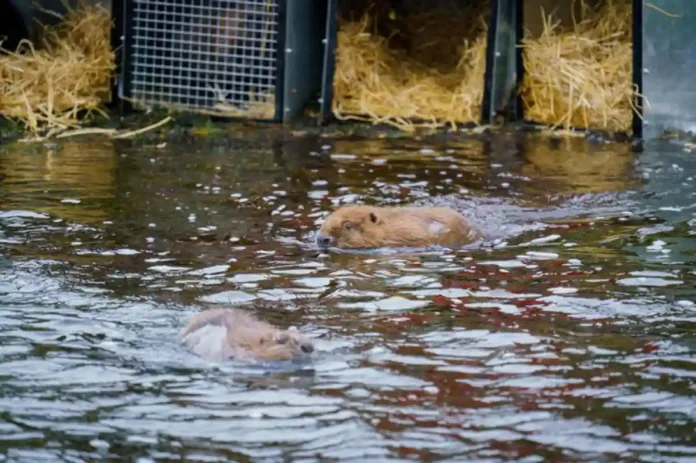A historic wildlife moment has unfolded in the Scottish Highlands as beavers have been reintroduced to Glen Affric — 400 years after their extinction in Scotland. This release marks a new chapter for Scotland’s biodiversity and conservation efforts.
Beavers Released in Glen Affric Nature Reserve
Following a license granted by NatureScot in August, four family groups of Eurasian beavers are being released into the waters above the Beinn a Mheadhoin Dam in the Glen Affric National Nature Reserve (NNR). The first two introductions — one pair and a family of five — took place on October 24.
This reintroduction is part of a long-term conservation effort that began with the 2009 beaver trial in Knapdale, Argyll, where the first modern releases were carried out. Since then, beavers have gradually been reintroduced to other regions across Scotland.
Community Collaboration and Environmental Vision
The Glen Affric beaver project follows three stages of extensive community consultation with local residents and land managers. The initiative has been developed through a partnership between Forestry and Land Scotland (FLS) and Trees for Life, with support from the Beaver Trust.
Steve Micklewright, Chief Executive of Trees for Life, described the release as a landmark conservation milestone:
“Watching the beavers swim free was witnessing a moment of wildlife history — a step forward in tackling the nature and climate crises. This project offers real hope for biodiversity, flood prevention, and ecological balance.”
He added that FLS has shown exceptional leadership in habitat restoration by reintroducing this “biodiversity-boosting, flood-preventing” species.
A Decade of Progress for Beaver Conservation
Beavers were officially recognized as a protected species in Scotland in 2019, following the Scottish Government’s 2016 decision to allow them to remain in the wild. Before their release in Glen Affric, the beavers underwent thorough health checks and quarantine at Five Sisters Zoo, ensuring their wellbeing and the safety of the ecosystem.
Alex McLeod, FLS North Region Manager, emphasized the importance of collaboration and communication throughout the process:
“Bringing beavers back to Glen Affric is the result of a detailed and transparent process. Engaging with local communities was crucial to ensure every voice was heard and every concern addressed.”
He also announced the formation of a monitoring group that will oversee the beavers’ adaptation and help manage any issues that may arise.
“We hope the beavers will one day become an integral, natural part of Glen Affric’s landscape,” McLeod said.
Why Beavers Matter for the Environment
Experts highlight that beavers play a vital ecological role by creating wetlands, which in turn:
- Enhance habitats for other wildlife
- Improve water quality
- Help reduce flooding naturally
Although beaver activity can occasionally cause localized issues, project partners have already prepared strategies to handle potential challenges swiftly and responsibly.
Conclusion
The return of beavers to the Scottish Highlands is not only a triumph for conservation but also a symbol of hope for the restoration of Scotland’s natural ecosystems. Through years of collaboration, research, and community engagement, the Highlands are once again home to one of Europe’s most important ecosystem engineers — the beaver.
Also Read:Rachel Reeves Hints at Possible Tax Increases in Upcoming Budget Amid Riyadh Trade Talks








